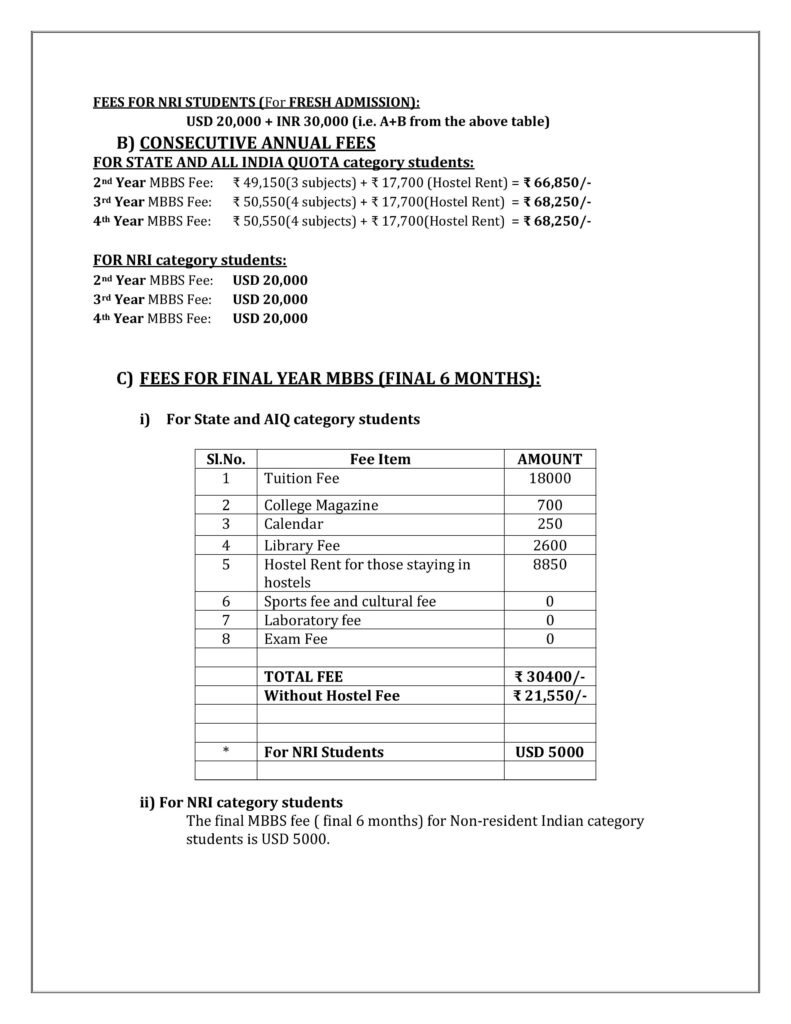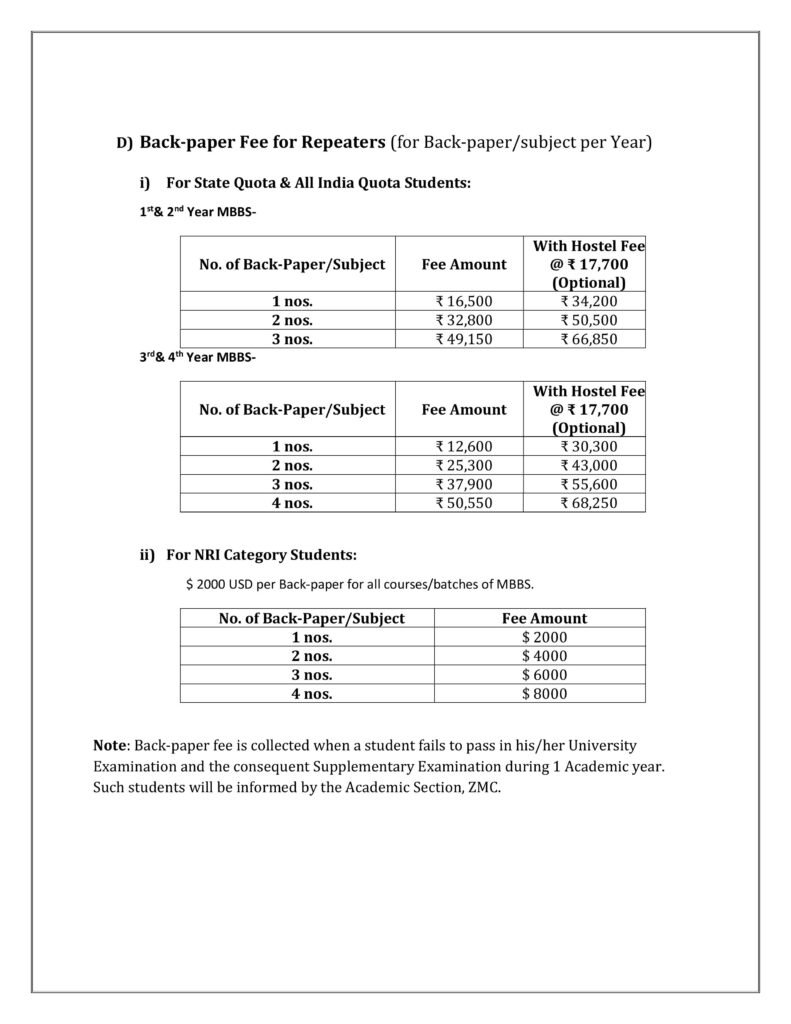About Zoram Medical College
Zoram Medical College (ZMC) [erstwhile MIMER] was established under the Centrally Sponsored Scheme ‘Establishment of new medical colleges by upgrading district/referral hospitals.
On 19th Feb. 2014 Dr Vishwas Mehta, Joint Secretary, Ministry of Health & Family Welfare, Government of India, gave approval for the opening of a new Medical College at State Referral Hospital Falkawn and an MoU signed between the Government of India and Government of Mizoram on the 16th May 2014 with a total project cost of Rs. 189 lakhs.
A provisional Consent of Affiliation was given by Mizoram University on the 7th January 2015.
HSCC (India) Limited was accepted as the consultancy agency on the 25th June 2015.
MIMER has been granted the Letter of Permission (LoP) by the Ministry of Health and Family Welfare (MOHFW), Government of India vide letter no No.U.12012/37/2018-M E-1 [FTS No. 3154165 Dt. 25/5/18 for intake capacity of 100 students for 1st MBBS Academic session 2018-2019.
The name of the college MIMER was changed to Zoram Medical College (ZMC) as per the decision of the Council of Ministers on the 26th April 2019.
The College was granted one year of Recognition from the National Medical Commission (NMC) on 16th June 2023 vide letter No. U-12021/6/2023-UGMEB/ Dated 16th June 2023.
MBBS Courses and Fees
Admissions are based on NEET scores, and the program emphasizes both theoretical and clinical training, supported by state-of-the-art infrastructure.



Zoram Medical College Facilities
Zoram Medical College (ZMC), affiliated with Mizoram University, provides excellent facilities for MBBS students. The key facilities include:
Medical Infrastructure:
- A 250-bed teaching hospital equipped with modern diagnostic tools and emergency services operating round the clock.
- Specialized departments in medicine, surgery, pediatrics, gynecology, and more, ensuring comprehensive clinical exposure for students.
Learning Resources:
- Lecture halls with audio-visual aids and a well-stocked library offering access to both physical and digital medical literature.
- Advanced laboratories and simulation centers for practical training in various medical disciplines.
Hostel and Campus Life:
- Separate hostels for men and women with 24×7 security, clean surroundings, and a student-friendly environment.
- Facilities for sports, cultural activities, and a tobacco- and alcohol-free campus spanning 42 acres.
Community Outreach:
- Regular medical camps, health awareness programs, and rural outreach for hands-on community health experience.
